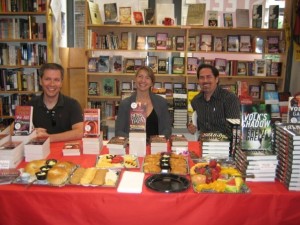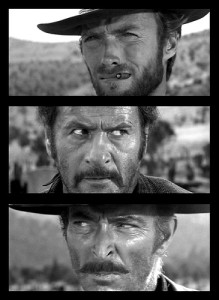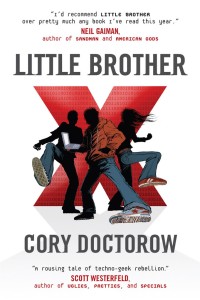by Michelle Gagnon
So we’re wrapping up our semi-annual series of first page critiques. I hope that by and large they’ve proven helpful. As someone who’s currently chewing her nails to the nub while waiting for an editor to weigh in on chapters, I can empathize with the stress of opening your work up to criticism. Even submitting anonymously can be a terrifying experience. So kudos to all those brave souls who shared their work.
Without further ado…
Untitled
Sometimes the dead will not stay in their graves but instead arise out of the ashes with the wings of a phoenix, born anew. Upon lying comatose for many years, suddenly and inexplicably, they find life, beat their way out of their casket and crawl out of the dirt until they breathe again. It had been twenty five years since the devil in Todd Meyer’s life had been buried. Now, with one burst his demon had returned to terrorize him.
The sun broke through a low floating cloud sending a wave of warmth and brightness through the people on the pier. It was an aberration, a freakishly warm sunny evening in late May on Lake Michigan where Todd and Zelda Meyer were enjoying a lazy walk on the Saint Joseph Pier.
Todd often wondered what holds two people together through all of the rough and rocky times of their life. What comes to pass when the flames of hell begin to nip at their heels as fire and brimstone fall from the heavens? Does a couple cling together more fiercely to fight off the approach of the wolves? Or does their relationship fall by the wayside like a discarded toy never to be played with again. In Todd’s existence, change had been the only constant, a life filled with despair and littered with sorrow.
A sharp wind off the lake jolted Todd. “Do you feel like walking a bit farther down to the lighthouse,” asked Zelda, his wife of three years, “to watch the sunset?”
He paused for a moment, squeezed her hand and said, “With you on my arm, I’ll go anywhere.” She gave a quick smile, leaned into him and kissed him full on the lips. Letting go of his hand for a moment, she reached around his back and smacked him on the butt, “Alright, babe, let’s get going.”
Ten feet behind them, alone, a short blond Mexican followed, his gun hidden by a bright yellow and white Hawaiian shirt.
Critique:
I’m all about immediacy. I recently finished reading Daniel Woodrell’s book WINTER’S BONE. An amazing novella that was extremely well written. But there were times when frankly I could have used a machete to hack my way through his metaphors. There is absolutely a place for that kind of writing. But for me as a reader, the critical thing is to strike a balance. Yes, I want to hear, see, taste, and smell what the characters are experiencing. But I also want to do that without having to re-read each sentence three times.
I found myself doing that here. This is an extraordinarily dense page, that for me only really started to pick up when we hit the short blond Mexican at the conclusion. (Side note: if you’re going to make a Mexican blond, probably a bad idea to also dress him in a yellow shirt. Especially if he’s trying to fly under the radar, which I gather is the case here).
I know we’ve been hammering away at this, but the truth is that those first few sentences are absolutely critical. They simply must be perfect for an agent (or, more likely, agent’s assistant), to keep reading. We start with, “Sometimes the dead will not stay in their graves but instead arise out of the ashes with the wings of a phoenix, born anew.”
Not bad. But it’s followed by, “Upon lying comatose for many years, suddenly and inexplicably, they find life, beat their way out of their casket and crawl out of the dirt until they breathe again.”
I’d argue that this is repetitive. There’s not enough new information in that second sentence to justify its existence. Come up with a way to combine the two into something stronger.
Along those lines: be very, very wary of mixing metaphors. In the opening paragraph I’m given both a phoenix and a demon as representations of the dead. In a single page we also have discarded toys and wolves. All great images, but I would recommend parsing them out a bit.
Also: know when to hold back. I was intrigued by the sentence, “Todd often wondered what holds two people together through all of the rough and rocky times of their life.” I’m intrigued by this concept too. Entire books can (and have) been devoted to precisely this question. And as I watch this couple walk along, heedless of the danger trailing at their heels, I’d love a hint of what is binding them together.
But that was followed by, “What comes to pass when the flames of hell begin to nip at their heels as fire and brimstone fall from the heavens?” The writer lost me on the second part. The scenery description is already heavy on moodiness and melodrama, setting the tone. But those types of statements push it too far. Less is more in this case, I’d say.
“Letting go of his hand for a moment, she reached around his back and smacked him on the butt, “Alright, babe, let’s get going.” This part was particularly jolting for me- the butt smack changes the entire tone that the author has been creating. Not that I’m opposed to butt smacks per se, but it felt like something that belonged on the first page of a very different novel. I surmise that this is an attempt to gain a moment of levity immediately prior to a truly terrible incident (as a thriller writer, I’ve already assumed that becoming attached to Zelda would probably be a mistake). But I think that what I’d prefer to experience as a reader, especially given the gravity of Todd’s train of thought, is a sweet moment between the two of them. Something that illustrates that bond he’s so concerned about losing. Something that makes me invest in them as people, since apparently something very, very bad lies just past the horizon.
With careful editing, I see some definite potential here. What other recommendations do people have for our intrepid author?









